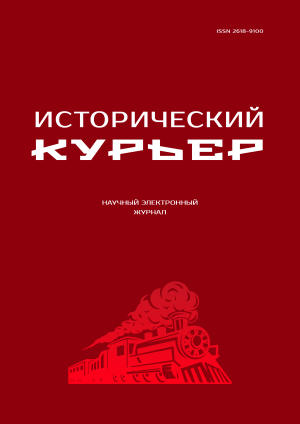“You didn’t Know How Your Names Would Shine with Glory”: 200 Years since the Decembrist Uprising
In 2025, a significant date in Russian history is celebrated − the 200th anniversary of the Uprising on Senate Square. The title of our anniversary issue contains lines by G. Ivanov dedicated to the Decembrists and defining their significance in the historical and cultural memory of Russia. On December 14, 1825, an armed uprising took place in St. Petersburg, which went down in history as the Decembrist uprising. After a very short time, it became clear that the armed uprising on December 14, 1825, was based on a powerful movement called the Decembrist movement. Soviet historical science proved that the Decembrist movement, marking the beginning of the liberation movement in Russia, did not perish with the defeat of the uprising on Senate Square and continued for many years after the uprising, the investigation and trial of the Decembrists. Attitudes towards the Decembrists varied from Tyutchev’s “corruption by autocracy” and predictions of exclusion from the historical memory of Russia, from official assessments of protective historiography to exceptional idealization. One thing is indisputable − the Decembrists represent the brightest phenomenon of the historical and cultural memory of our people. They cannot be excluded from the very image of Russian civilization − without them, it will be distorted and incomplete. During the difficult years of the destruction of the USSR, the Decembrists were tried to overthrow from their historical pedestal, humiliate and trample, including in science, vulgarizing research approaches in favor of the new ideological dictate. It didn't work out to rewrite history. Today, the “firstborn of freedom” are once again slowly but surely emerging from oblivion, the burden of historical falsifications, and occupying a lasting place in the historical memory of the people. Museums are developing, conferences are taking place, including youth ones, and today a new generation is once again choosing the Decembrists as their heroes. This is a national memory that has broken through the centuries, through a difficult time of denial. Why is this happening? We will try to understand the historiographical and cultural processes and evaluate this truly unique phenomenon in the thematic issue of the magazine. Who knows, maybe the anniversary year, like 1975, will give a new impetus to the study of the topic of the Decembrists.
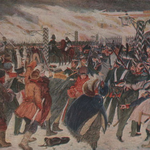 Decembrists and Their Legacy
Decembrists and Their Legacy
P.V. Ilyin
The St. Petersburg Conspiracy of the Decembrists in 1825: Unstudied and Unclarified Episodes and Personalities
For the first time in historiography, this comprehensive collection of data on the Decembrist conspiracy on the eve of the December 14, 1825, uprising offers, and a modern view on the development of the Decembrist conspiracy has been presented. The facts and circumstances that were not affected by the government investigation are highlighted, and the information about the alleged participants in the Decembrist conspiracy is brought together. The collected information is based strictly on documentary evidence − it is extracted from investigative materials, regimental inquiries, denunciations, police documents, official reports and letters from participants and eyewitnesses of the events, and memoirs. The data summarized in this article complement existing understanding of the Decembrist conspiracy in St. Petersburg and provides more complete and objective information about the scale of the Decembrist conspiracy on the eve of the December 14, 1825, uprising, including parts of it that were hidden from the investigation.
Publishing: 28/12/2025
How to cite: Ilyin P.V. The St. Petersburg Conspiracy of the Decembrists in 1825: Unstudied and Unclarified Episodes and Personalities // Historical Courier, 2025, No. 6 (44), pp. 9−34. [Available online: http://istkurier.ru/data/2025/ISTKURIER-2025-6-01.pdf]
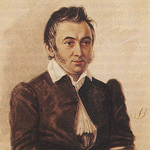 Decembrists and Their Legacy
Decembrists and Their Legacy
M.V. Lenchinenko
Decembrist until December: Books by Nikita Muravyov
The article is devoted to the study of the library of the Decembrist Nikita Mikhailovich Muravyov. The focus is on the collection of books by the Decembrist from the collections of the Scientific Library of the Lomonosov Moscow State University. It contains books dating back to 1825. This collection is interesting not only for its contents but also for the traces of reading left by their owner. His numerous marginalia allow us to supplement our understanding of the development of the political views of the future Decembrist. The library’s contents demonstrate the diversity of its owner’s interests and the level of his education.
Publishing: 28/12/2025
How to cite: Lenchinenko M.V. Decembrist until December: Books by Nikita Muravyov // Historical Courier, 2025, No. 6 (44), pp. 35−48. [Available online: http://istkurier.ru/data/2025/ISTKURIER-2025-6-02.pdf]
 Decembrists and Their Legacy
Decembrists and Their Legacy
E.V. Pshenichnaya
The Book Legacy of I.P. Liprandi: A Fragment of His Personal Library in the Alisher Navoi National Library of Uzbekistan
The article is devoted to the study of a fragment of the personal library of Ivan Petrovich Liprandi (1790−1880), a Russian military figure, writer and collector, whose creative legacy is connected with the study of military history and Russian sectarianism, is studied in the article. The study attempts to reconstruct the nature of I.P. Liprandi’s connections with the Decembrist movement through an analysis of the composition and features of his personal library. The data obtained will contribute to the study of the history of Russian book collecting in the 19th century. The work acquires special significance for Pushkin scholars, given the presence in this collection of publications used by A.S. Pushkin.
The article was prepared according to the plan of research work of the State Public Scientific and Technical Library of the Siberian Branch of the Russian Academy of Sciences, project No. 122041100088-9 “Transformation of Book Culture in Social Communications of the 19th−21st Centuries”.
Publishing: 28/12/2025
How to cite: Pshenichnaya E.V. The Book Legacy of I.P. Liprandi: A Fragment of His Personal Library in the Alisher Navoi National Library of Uzbekistan // Historical Courier, 2025, No. 6 (44), pp. 49−59. [Available online: http://istkurier.ru/data/2025/ISTKURIER-2025-6-03.pdf]
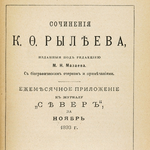 Decembrists and Their Legacy
Decembrists and Their Legacy
Yu.V. Timofeeva
Works of the Decembrists and about the Decembrists in the Libraries of Siberia and the Far East in the Pre-Revolutionary Period
With the extensive historiography of the Decembrist movement, the study of the issue of the presence in the libraries of Siberia and the Far East in the pre-revolutionary period of works by their authorship and about them in the publications of researchers is not traced. An article based on 23 printed catalogs shows the presence of such literature in the collections of 19 reviewed libraries. Attention was drawn to the fact that all the catalogs reviewed were approved by censorship and printed with the permission of local governors, which indicates the legality of finding such literature in library collections.
The article was prepared according to the plan of research work of the State Public Scientific and Technical Library of the Siberian Branch of the Russian Academy of Sciences, project No. 122041100088-9 “Transformation of Book Culture in Social Communications of the 19th−21st Centuries”.
Publishing: 28/12/2025
How to cite: Timofeeva Yu.V. Works of the Decembrists and about the Decembrists in the Libraries of Siberia and the Far East in the Pre-Revolutionary Period // Historical Courier, 2025, No. 6 (44), pp. 60−72. [Available online: http://istkurier.ru/data/2025/ISTKURIER-2025-6-04.pdf]
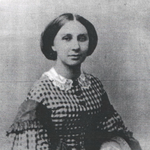 Name in History
Name in History
N.P. Matkhanova
Larisa Andreevna Podzhio: A Decembrist’s Wife, but not a “Decembristka”
The article reconstructs the main milestones in the biography of L.A. Smirnova, the wife of the Decembrist A.V. Podzhio. She is not included among the women traditionally known as “Decembristka”, as she did not travel to Siberia to join her husband or fiancé who had been sentenced to penal servitude or exile. Instead, she arrived in Irkutsk after completing a Moscow women’s school and met her future husband in Siberia. The article explores the many hardships the family faced, their shared commitment to their daughter’s education, and their contacts with numerous Decembrists, their wives, and children. Her crucial role in preserving and publishing A.V. Podzhio’s “Memoirs” is also highlighted.
The article was made on the topic of the state assignment “The Past in the Manuscript Sources of the 16th−20th Centuries: Preservation and Development of Traditions” (FWZM-2024-0006).
Publishing: 28/12/2025
How to cite: Matkhanova N.P. Larisa Andreevna Podzhio: A Decembrist’s Wife, but not a “Decembristka” // Historical Courier, 2025, No. 6 (44), pp. 73−92. [Available online: http://istkurier.ru/data/2025/ISTKURIER-2025-6-05.pdf]
 Name in History
Name in History
E.B. Shtets
Former Danish Officer in Russian Service (Russian Period of the Decembrist’s Life E.V. von Ruge)
Lieutenant General K.-E. von Ruge went down in Russian history as a participant in the Decembrist conspiracy and an officer, who played a significant role in the establishment and development of Russian military topography. The study uses previously unknown personnel data from different years to ensure historical accuracy and completeness. A key contribution of this publication is the introduction into scholarly circulation of von Ruge’s personal correspondence, preserved in the family archive in Norway. His entry into the Russian army and his connections with the Decembrist secret Union of Welfare were studied. An research was conducted over more than 30 years of service. The content of the Russian Army General’s salary and the system of rewards are shown. Information about Ruge’s last years is provided.
Publishing: 28/12/2025
How to cite: Shtets E.B. Former Danish Officer in Russian Service (Russian Period of the Decembrist’s Life E.V. von Ruge) // Historical Courier, 2025, No. 6 (44), pp. 93−110. [Available online: http://istkurier.ru/data/2025/ISTKURIER-2025-6-06.pdf]
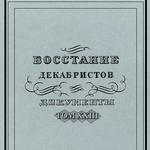 Questions of Historiography and Source Study
Questions of Historiography and Source Study
O.V. Edelman
Documentary Series “The Decembrist Uprising”: One Hundred Years of the Development of Archeography
The first volumes of The Decembrist Uprising were published a hundred years ago, in 1925. With such a long history of the documentary series, it certainly had to reflect the changes that took place during this time in archaeological thought, approaches to the transmission of the text of documents, methods of archaeological processing, and the compilation of scientific reference apparatus. At the same time, the editors and publishers of the series tried to maintain a uniform style both in the general principles of presentation of the material and in the design of the volumes, which we adhere to to this day.
Publishing: 28/12/2025
How to cite: Edelman O.V. Documentary Series “The Decembrist Uprising”: One Hundred Years of the Development of Archeography // Historical Courier, 2025, No. 6 (44), pp. 111−122. [Available online: http://istkurier.ru/data/2025/ISTKURIER-2025-6-07.pdf]
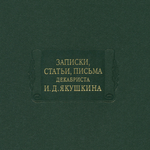 Questions of Historiography and Source Study
Questions of Historiography and Source Study
E.N. Tumanik
The Debate on the “Literary Monument”: Publishing I.D. Yakushkin’s Legacy in Light of M.K. Azadovsky’s Criticism
The publication in 1951 of the volume “Notes, Articles and Letters of the Decembrist I.D. Yakushkin” in the series “Literary Monuments” became a phenomenon of book culture. The publication was prepared by S.J. Shtraich. The successful composition of the volume and the selection of materials for publication made the legacy of I.D. Yakushkin in demand not only as an integral historical source, but also elevated it to a number of phenomena of Russian literature. However, along with the positive aspects, the publication revealed a number of glaring shortcomings in the field of scientific commentary, which caused fair criticism in the scientific community, which was expressed in the press by M.K. Azadovsky.
The article was prepared according to the plan of research work of the State Public Scientific and Technical Library of the Siberian Branch of the Russian Academy of Sciences, project No. 122041100088-9 “Transformation of Book Culture in Social Communications of the 19th−21st Centuries”.
Publishing: 28/12/2025
How to cite: Tumanik E.N. The Debate on the “Literary Monument”: Publishing I.D. Yakushkin’s Legacy in Light of M.K. Azadovsky’s Criticism // Historical Courier, 2025, No. 6 (44), pp. 123−141. [Available online: http://istkurier.ru/data/2025/ISTKURIER-2025-6-08.pdf]
 Questions of Historiography and Source Study
Questions of Historiography and Source Study
A.A. Ivanov
Problems of Modern Decembrist Studies on the Pages of the Irkutsk Magazine
The article contains an overview of the publications of the Izvestiya Irkutsk State University journal in the series "History", which reflect the specific historical, source studies and historiographical problems of modern, mainly Siberian, Decembrist studies. After examining all issues of the journal from 2011 to 2025, the author established the total number of articles on Decembrist subjects and determined their direction. It is estimated that the largest number of publications on the history of the Decembrists’ stay in Siberia and Decembrist studies belong to specialists from Irkutsk and Novosibirsk.
Publishing: 28/12/2025
How to cite: Ivanov A.A. Problems of Modern Decembrist Studies on the Pages of the Irkutsk Magazine // Historical Courier, 2025, No. 6 (44), pp. 142−157. [Available online: http://istkurier.ru/data/2025/ISTKURIER-2025-6-09.pdf]
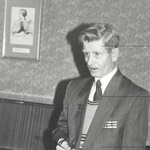 Questions of Historiography and Source Study
Questions of Historiography and Source Study
T.A. Pertseva
The Foundation of the Irkutsk Decembrist Scholar S.F. Koval in the Irkutsk Region National Archive
The article provides a general overview of the personal fund of an Irkutsk historian S.F. Koval, stored in the GAIO. The author points out the main directions of the scholar's activity and the deposited materials nature in this fund: the formation of interest in Decembrist studies, participation in academic conferences, work on articles, preparation and publication of the Decembrist sources, including Koval's main brainchild − the documentary series “Polar Star”.
Publishing: 28/12/2025
How to cite: Pertseva T.A. The Foundation of the Irkutsk Decembrist Scholar S.F. Koval in the Irkutsk Region National Archive // Historical Courier, 2025, No. 6 (44), pp. 158−166. [Available online: http://istkurier.ru/data/2025/ISTKURIER-2025-6-10.pdf]
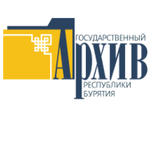 Questions of Historiography and Source Study
Questions of Historiography and Source Study
A.E. Maksiutov
Documents of the State Archive of the Republic of Buryatia about the Decembrists
The article examines the Republic of Buryatia’s State Archive documents’ collection contents, related to the life and work of the Decembrists in Siberia. Based on the analysis of the collection, its characteristics are given, the classification of documents is made, and the problems of its usage are identified. Unpublished sources include two groups: documents about the Decembrists’ life in the settlement and materials telling about the process of studying the Decembrists’ exile, perpetuating the memory of the "noble revolutionaries" in Buryatia. It is concluded that the materials of the republican archive on the Decembrists can contribute to the study of regional nuances of the state policy of the Russian Empire in relation to political exiles, the study of ways to preserve the memory of the Decembrists in the republic, and the expansion of the historiography of the Decembrist movement.
The work was carried out as part of the state assignment, project “Russia and Inner Asia: Dynamics of Geopolitical, Socioeconomic, and Intercultural Interaction (17th−21st Centuries)”, No. 121031000243-5.
Publishing: 28/12/2025
How to cite: Maksiutov A.E. Documents of the State Archive of the Republic of Buryatia about the Decembrists // Historical Courier, 2025, No. 6 (44), pp. 167−175. [Available online: http://istkurier.ru/data/2025/ISTKURIER-2025-6-11.pdf]
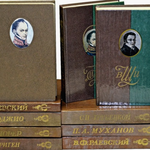 In the First Person
In the First Person
V.P. Shakherov
“Bringing the Facts to Light” (Some Reflections on Participation in the Editorial Board of the “Polyarnaya Zvezda” Series)
This publication, based on personal experience, describes the activities of the editorial board of the series “Polyarnaya Zvezda” and its role in expanding the source base for studying the topic “The Decembrists in Siberia.” It provides a description of some members of the editorial board. A significant amount of attention is given to the work on identifying and preparing for publication a two-volume collection of works and letters by the Decembrist V.I. Shteyngel. The publication includes letters by N.V. Zeifman, who was his co-author on this publication.
Publishing: 28/12/2025
How to cite: Shakherov V.P. “Bringing the Facts to Light” (Some Reflections on Participation in the Editorial Board of the “Polyarnaya Zvezda” Series) // Historical Courier, 2025, No. 6 (44), pp. 176−189. [Available online: http://istkurier.ru/data/2025/ISTKURIER-2025-6-12.pdf]
 Memory of the Decembrists
Memory of the Decembrists
K.A, Tishkina, T.V. Tishkina
Memorialization of the Memory of the Decembrists in the 1920s (On the Example of the Yenisei Province and the Krasnoyarsk District)
The article is devoted to research and measures to identify burial sites and preserve the memory of the participants of the December uprising of 1825 in St. Petersburg, exiled to Siberia, conducted in the 1920s by the staff of the archive and museum of the Yenisei province (since 1925 − Krasnoyarsk district). The main attention is paid to the activities of the staff of the Yenisei Provincial Archival Bureau, local authorities and interested persons in collecting information about the burial sites of the Decembrists. Specific cases of identification of burials of famous figures of the movement are considered. Attention is drawn to the activities of P.M. Ustimovich, who made a significant contribution to the study of the legacy of V.L. Davydov. The work was carried out on the basis of archival sources, including materials from witness interviews, drawings, drawings and descriptions of tombstones documenting cultural heritage sites that have been lost to date.
Publishing: 28/12/2025
How to cite: Tishkina K.A., Tishkina T.V. Memorialization of the Memory of the Decembrists in the 1920s (On the Example of the Yenisei Province and the Krasnoyarsk District) // Historical Courier, 2025, No. 6 (44), pp. 190−195. [Available online: http://istkurier.ru/data/2025/ISTKURIER-2025-6-13.pdf]
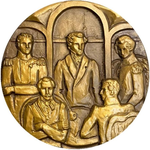 Memory of the Decembrists
Memory of the Decembrists
V.A. Klamm
The Memory of the Decembrists in the 20th Century (Using the Example of an Analysis of Jubilee Campaigns)
The article analyzes the evolution of state and scientific attitudes towards the Decembrist uprising based on an analysis of the jubilee campaigns of the 20th century. The author highlights the main stages: the easing of censorship and the publication of policy documents at the beginning of the century, the ideological discussion in 1925, the peak of interest and the formation of “Soviet Decembrist studies” in the second half of the century, the strengthening of the role of the state as a mnemonic actor during the celebration of the 150th anniversary in 1975, the modern stage in the study of Decembrism. The study focuses on the peculiarities of the historical policy of the state during the last century. The results of the study contribute to understanding the mechanisms of the formation of historical memory about the Decembrists, actualizing the need for further scientific reflection on this phenomenon.
Publishing: 28/12/2025
How to cite: Klamm V.A. The Memory of the Decembrists in the 20th Century (Using the Example of an Analysis of Jubilee Campaigns) // Historical Courier, 2025, No. 6 (44), pp. 196−209. [Available online: http://istkurier.ru/data/2025/ISTKURIER-2025-6-14.pdf]
 Memory of the Decembrists
Memory of the Decembrists
O.N. Shelegina
The Politics of Representing of the History of the Decembrists in the Museum Word of Siberia at the Beginning of the 21st Century
The history of the creation (1927−1997) of six Decembrist museums in the Siberian cities of Irkutsk, Yalutorovsk, Novoselenginsk, Petrovsk-Zabaikalsky, Chita, and Minusinsk is reconstructed. The main directions of the policy for representing the history of the Decembrists are identified: adapting exhibitions to ideological, scientific, and sociocultural paradigms; developing a well-developed intellectual space on Decembrist issues; and implementing projects that actualize the historical and cultural heritage of the Siberian period of the Decembrists' life.
The article was prepared as part of the scientific project FWZM 2024-0008 “Society and Power in Russia in the 20th − Early 21st Centuries: Political Participation, Communication, and Actor Identity”.
Publishing: 28/12/2025
How to cite: Shelegina О.N. The Politics of Representing of the History of the Decembrists in the Museum Word of Siberia at the Beginning of the 21st Century // Historical Courier, 2025, No. 6 (44), pp. 210−226. [Available online: http://istkurier.ru/data/2025/ISTKURIER-2025-6-15.pdf]
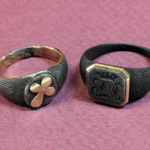 Memory of the Decembrists
Memory of the Decembrists
E.A. Dobrynina
The Decembrists’ Commemorative Rings: The History of Their Creation and Existence
The article is devoted to the history of the creation and existence of commemorative items made of shackle iron. The Decembrist history associated with iron rings is the most famous and iconic, as it has facets that reflect several categories of memory: the memory of hard labor, the memory of sacrifice, the memory of kinship, and the memory of symbolism. The ring is a symbol of imprisonment, a ring is a memory of punishment, and a ring is an emblem of suffering. Many of the Decembrists, after being freed from their shackles, decided to preserve the memory of their ordeal and began making various souvenirs from their shackles, such as rings, crosses, and more. The Irkutsk Museum of the Decembrists is the owner of two legendary rings.
Publishing: 28/12/2025
How to cite: Dobrynina E.A. The Decembrists’ Commemorative Rings: The History of Their Creation and Existence // Historical Courier, 2025, No. 6 (44), pp. 227−242. [Available online: http://istkurier.ru/data/2025/ISTKURIER-2025-6-16.pdf]
![Who Lit the Stars and How. Review: Nechkina M.V. Koval S.F. Correspondence of Decembrist Studies (1974−1985) / M.V. Nechkina. S.F. Koval; [publ., preface, comments by N.P. Matkhanova]. Irkutsk: Irkutsk Museum of the Decembrists, 2025. 288 p. Who Lit the Stars and How. Review: Nechkina M.V. Koval S.F. Correspondence of Decembrist Studies (1974−1985) / M.V. Nechkina. S.F. Koval; [publ., preface, comments by N.P. Matkhanova]. Irkutsk: Irkutsk Museum of the Decembrists, 2025. 288 p.](/en/../images/Data/2025-06/2025-6-17z.png) The World of Books
The World of Books
G.M. Zaporozhchenko
Who Lit the Stars and How. Review: Nechkina M.V. Koval S.F. Correspondence of Decembrist Studies (1974−1985) / M.V. Nechkina. S.F. Koval; [publ., preface, comments by N.P. Matkhanova]. Irkutsk: Irkutsk Museum of the Decembrists, 2025. 288 p.
In a new book, the achievements of Russian Decembrist studies are related with a dialogue in the community of historians. N.P. Matkhanova, who has extensive experience in Decembrist studies, has published and scientifically commented on 124 epistolaries of Academician M.V. Nechkina and Irkutsk researcher of Decembrism S.F. Koval for 1974–1985, which are stored in the Archives of the Russian Academy of Sciences and the State Archive of the Irkutsk region. These documents discuss general issues of Decembrist studies and archaeography in connection with the publication of the documentary series “Polar Star” which was edited by M.V. Nechkina until her death, and was initiated and led by S.F. Koval.
The article was prepared as part of the scientific project FWZM 2024-0008 “Society and Power in Russia in the 20th − Early 21st Centuries: Political Participation, Communication, and Actor Identity”.
Publishing: 28/12/2025
How to cite: Zaporozhchenko G.M. Who Lit the Stars and How. Review: Nechkina M.V. Koval S.F. Correspondence of Decembrist Studies (1974−1985) / M.V. Nechkina. S.F. Koval; [publ., preface, comments by N.P. Matkhanova]. Irkutsk: Irkutsk Museum of the Decembrists, 2025. 288 p. // Historical Courier, 2025, No. 6 (44), pp. 243−256. [Available online: http://istkurier.ru/data/2025/ISTKURIER-2025-6-17.pdf]
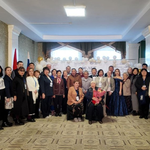 Scientific Life
Scientific Life
A.E. Maksiutov
Interregional Scientific and Practical Conference “Selenginsk − the Crossroads of Centuries-Wld Ways”
An overview of the work of the interregional scientific and practical conference “Selenginsk − the Crossroads of Centuries-Old Ways”, dedicated to the 200th anniversary of the Decembrist Uprising and the 50th anniversary of the opening of the Novoselenginsky Museum, is presented. The conference was held in Novoselenginsk and Ulan-Ude from September 11 to 12, 2025. Among the areas of work of the scientific forum, the Decembrist theme occupied a leading place: the study of the Decembrist heritage in Buryatia and the contribution of the Decembrists to the research and development of Transbaikalia, the role of Decembrist museums in preserving historical memory and patriotic education.
The article was prepared within the framework of the state assignment, the project “Russia and Inner Asia: The Dynamics of Geopolitical, Socio-Economic and Intercultural Interaction (17th−21th Centuries)”, No. 121031000243-5.
Publishing: 28/12/2025
How to cite: Maksiutov A.E. Interregional Scientific and Practical Conference “Selenginsk − the Crossroads of Centuries-Wld Ways” // Historical Courier, 2025, No. 6 (44), pp. 257−261. [Available online: http://istkurier.ru/data/2025/ISTKURIER-2025-6-18.pdf]
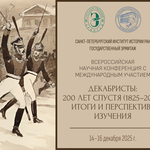 Scientific Life
Scientific Life
E.N. Tumanik
All-Russian Scientific Conference with International Participation “The Decembrists: 200 Years Later (1825−2025). Results and Prospects of Research”
This article provides a brief overview of the All-Russian Scientific Conference with International Participation “The Decembrists: 200 Years Later (1825−2025). Results and Prospects of Research”, which was held in St. Petersburg on December 14–16, 2025. The main themes and events of the scientific forum are discussed.
Publishing: 28/12/2025
How to cite: Tumanik E.N. All-Russian Scientific Conference with International Participation “The Decembrists: 200 Years Later (1825−2025). Results and Prospects of Research” // Historical Courier, 2025, No. 6 (44), pp. 262−263. [Available online: http://istkurier.ru/data/2025/ISTKURIER-2025-6-19.pdf]



